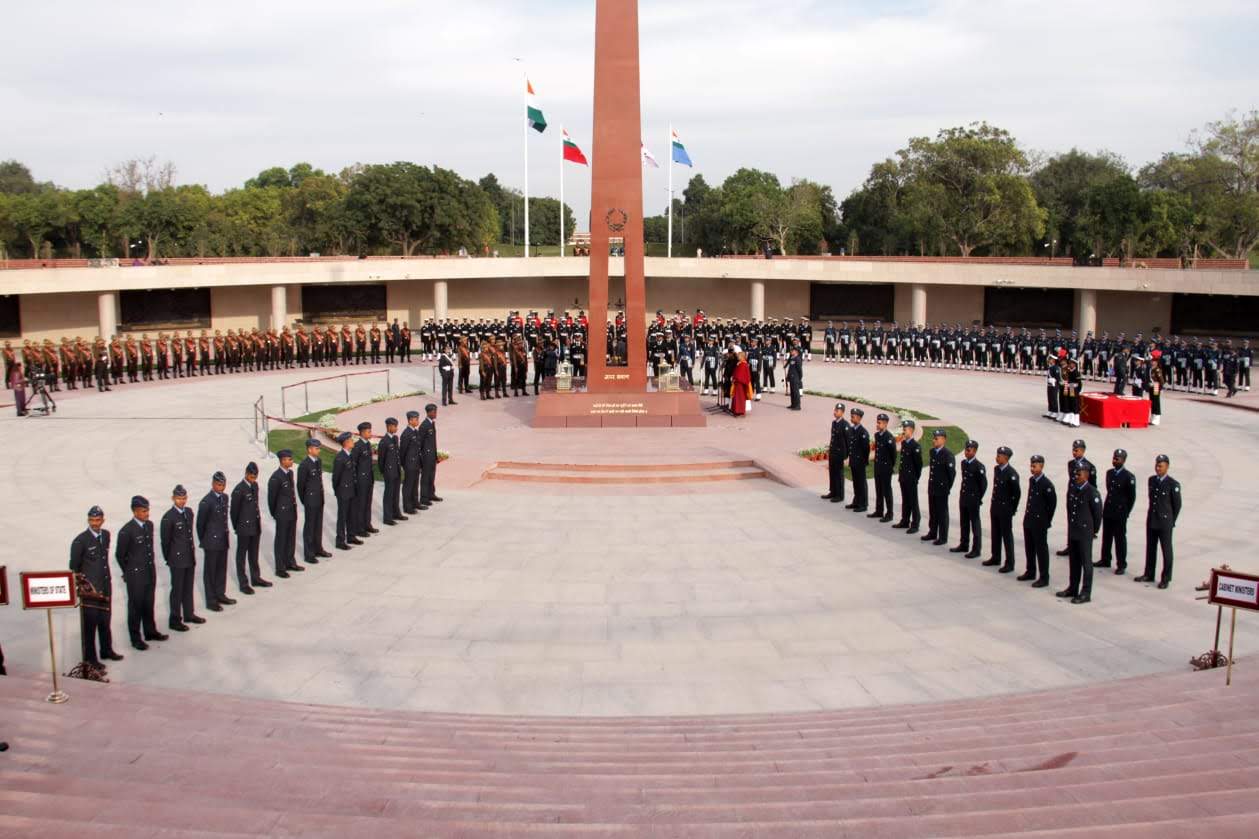Every time we lose a soldier in action, there is widespread and impassioned display of emotion by the citizenry which is quite heartening. Then perhaps out of the same passion, many citizens question the media when it reports such casualties with varied epithets, demanding that such soldiers should only be referred as ‘martyrs’. Though this demand comes only out of respect for our soldiers, paradoxically this term is neither soldierly nor appropriate for warriors who make the supreme sacrifice in battle.
The etymology of the word ‘martyr’ is undisputed. A derivative for ‘witness’ and referring to witnesses who died for their testimonies, it has Greek origins and refers to someone who is persecuted and then killed for refusing to renounce his or her religion. Commonly used both in Christianity and Islam, in case of the latter it refers to a person who dies conducting ‘jihad’. In fact, the term ‘shaheed’ also literally means a ‘witness’. In Sikhism too, martyrdom refers to a person killed for religion, for example, the Gurus put to death when they refused to renounce their faith.
While the above remains the main import of the word, some dictionaries also allude to other (lesser) usages. One such usage is for someone put to death or immense suffering because of his or her belief or cause, chiefly political. In this sense, it is often used for persecuted political personalities, mainly freedom fighters. The point to be noted is that it is used in the sense wherein the person himself or herself willingly submits to death for political causes. The third usage is for those who pretend to suffer or exaggerate their sufferings to gain sympathy.
Soldiers do not fall in any of the three usages and the word is not used to define the death of soldiers in action by any nation around the world, except by armies of Islamic nations due to the religious connotation of martyrdom. Yes, terrorist organisations do consider dead terrorists as ‘martyrs’ as per their (flawed) understanding of a holy war.
The concept itself, whether in the case of religious causes or political, involves persecution or willing submission to death or suffering. Though a soldier defends the Flag even to the peril of his or her life, he or she fights to win, to return victorious, and not with an aim to voluntarily embrace death.Recall the speech by General Patton, when he famously said words to the effect—No soldierever won a war by dying for his country; he won it by making the other poor dumb soldier die for his country. Even open sources such as Wikipedia list ‘martyr’ under two categories- the original (religious), and the political. There are no military martyrs.
The incorrect terminology crept into practice more since the 1990s despite many commentators and old soldiers repeatedly emphasizing that while it is being applied from an emotive viewpoint, it is actually disrespectful to soldierly traits because it has direct religious connection and reflects suffering and persecution. Replying to a Writ Petition for “martyr” status filed in the Delhi High Court, the Government of India submitted on affidavit that no such term was being used for our uniformed personnel. Later a statement was also made in the Parliament that “the word ‘martyr’ is not used in reference to any of the casualties in the Indian Armed Forces”. Yet the term continues to be wrongly employed even by official handles of high offices though the Indian Army’s official handle is now careful with using the appropriate terminology. Such has been the influx of the term in our consciousness that the Police Commemoration Day (21st October) is at times wrongly referred to as Police Martyrs’ Day.
So what is the correct way to refer to soldiers or uniformed personnel whom we lose in action? Well, ‘fallen soldiers’ and ‘killed in action’ are considered the most appropriate terms the world over; the latter might sound cold and harsh, but is actually the correct terminology rather than the emotive sounding ‘martyr’ and is also recognized in official instructions in India along with ‘battle casualty’. Many of us would remember KIA & MIA used in war movies and novels! The usage of ‘supreme sacrifice’ or ‘brave-hearts’ or simply ‘braves whom we lost’ is also in order. Further, in vernacular, the neutral term ‘veergati’ or ‘veergatiprapt’ is also used. In fact, some simply use ‘veer’ while referring to fallen soldiers while war widows are called ‘veer naris’.
Some argue that language transforms with time and there is no harm if the term has assimilated into this meaning. However, this is not a case of transformation but simply wrong use of a word by confusing it with terms used during the freedom struggle and copying the practice of a neighbouring nation. As an analogy,when the word ‘factoid’ (which actually means incorrect piece of information) is mistakenly used in the sense of ‘fact’, thinking that it means a ‘small fact’, the usage does not get validated. If venomous and poisonous or bemused and amused are incorrectly interchangeably used, it’s not some organic change in the meaning with time-it’s simply erroneous.
Our idea of penning this piece is not to embarrass anyone using the term, since in all fairness, we too might be guilty of such incorrect usage in the past, but only to edify that while people in India employ it out of sheer respect, theconnotation is not what it seems at the surface.It is not used in any comparable armed force in the world and carries a heavy baggage which does not configure with the brave ethos of the military, and rather militates against it.
Lt Gen SatishDua is a former Corps Commander in Kashmir, who retired as Chief of Integrated Defence Staff.
Major Navdeep Singh is a lawyer at the Punjab & Haryana High Court.

